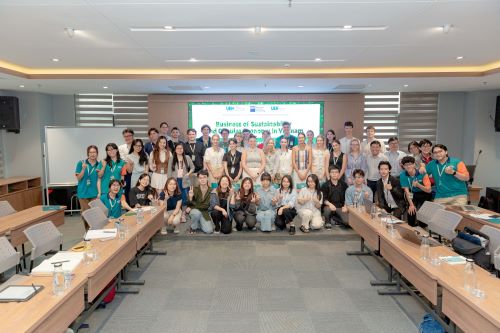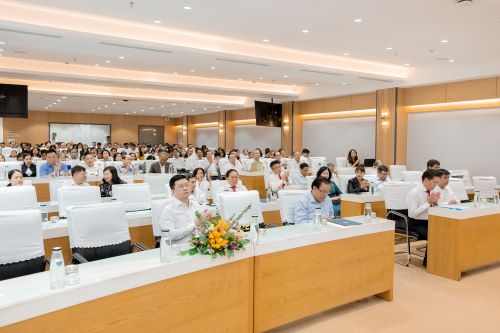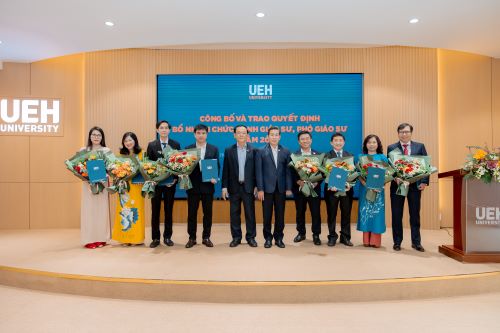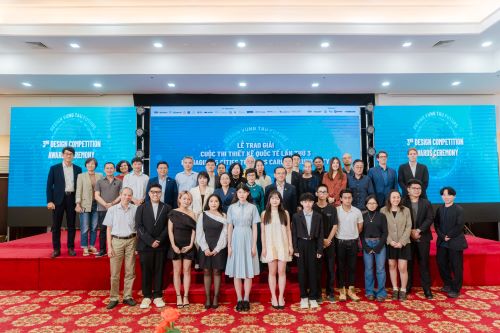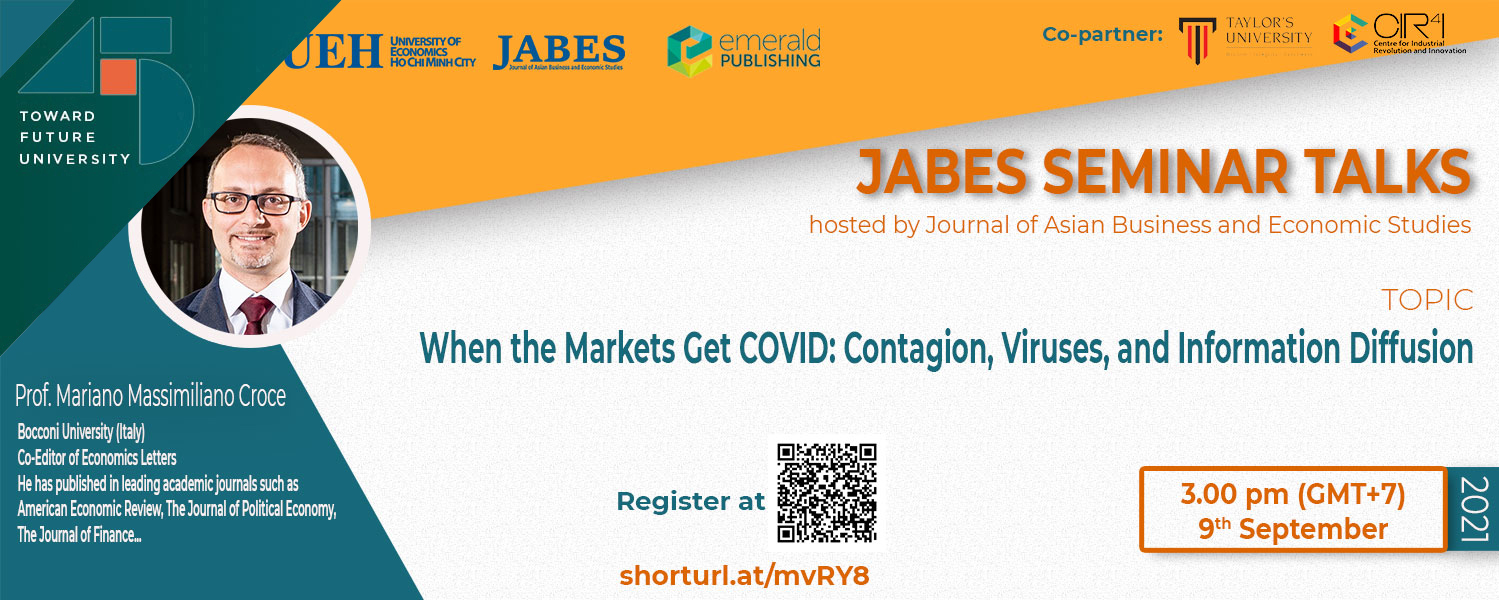
JST July 2021: How does the economics of the household help us deal with COVID-19?
On July 1st, 2021, Professor Shoshana Grossbard, current Editor-in-Chief of Review of Economics of the Household Journal and keynote speaker of JST July, was joined by UEH JABES host and more than 100 researchers and scholars worldwide (namely Indonesia, Cambodia, India, the US, Mexico, Brazil, etc.) in her conversation regarding "How does household economics helps us deal with Covid-19?" During her presentation, Professor Grossbard dissected her studies and emphasized on the impact of COVID-19 on household economy, people’s health and the workforce in the society.
Economics of the household plays a vital role in a country’s economy. Its analysis often revolves around: household information (including family size, health data, child and elderly care, marital status, etc.); immigration status and intergeneration gaps; empirical research on households; consumption, savings and accumulation of household wealth; labor force and employment duration; family welfare and issues on gender, authority, fertility rights, religion and ethnicity, etc.
Professor Shoshana Grossbard is a current Editor-in-Chief of Review of Economics of the Household Journal, a member of the Family Inequality network at the University of Chicago, USA, a researcher at IZA and CESifo, and scholar at San Diego State University. On July 1st, 2021, as a keynote guest speaker for JABES International Scientific Conference – JABES Seminar Talks in July and leading expert in the field of household economics, Professor Grossbard were able to conduct a thorough presentation and explanation on the topic of "How does the economics of the household help us deal with Covid-19?".
The rapid outbreak and spread of the COVID-10 pandemic have severely impacted the surrounding community, most notably people’s health and the overall economy of the nation. In dealing with the ongoing aftermath of the crisis, various policies have been put in place to help prevent COVID from affecting more lives while effectively trying to restore the economy, all of which are still some of the largest global challenges at present. Having said that, on the occasion of July JST, Professor Grossbard moved to present her studies and numerous evidence supporting the theory of how COVID is seriously impacting families as it deteriorate people’s health and the labor force.
More specifically, Professor Grossboard cited several prominent research articles that discussed the impact that COVID-19 has on household economics, such as one written by Del Boca et al (2020) analyzing the domestic roles of women and men in childcare before and during the COVID-19 pandemic. This study presented an interesting outcome, showing that women tend to hold much higher importance in household production as opposed to their male counterparts. Or another article written by Heggeness (2020) where they denoted the immediate shock factor that COVID has on the mother’s dilemma of choice between upholding their professional capacity or childcare responsibilities.
Comparable to these studies and those conducted by Harris (2020), Sheth & Wright (2020), Professor Grossbard’s own study raised two key issues for the JST discussion, which included (1) analyzing COVID-related causes of death, which was a research done jointly between Professor Grossbard and Ainhoa Aparicio (Italy), and (2) assessing the composition of the labor resources, COVID and the law on division of marital property, which was done by both Professo Grossbard and Cynthia Bansak (USA) and Crystal Ho-Po Wong (Taiwan).
The studies conducted in 2021 between Professor Grossbard and her colleagues were aimed at addressing the three following questions: (1) Does multigenerational cohabitation have an upward trend effect on COVID-19 mortality rates?; (2) What are the benefits that countries might see after a pandemic?; and (3) Are COVID fatalities in the US higher than in the EU? (Grossbard & Ainoa Aparicio, 2021). To conduct this study, the Professor and her colleagues have collected data across 35 European countries and all 50 US states.
Regarding the first question, Professor Grossbard agreed, as did other studies such as Bayer & Kuhn (2020) or Belloc et al (2020), that the cohabitation of multiple generations of a family during the pandemic does play into driving an upward trend of COVID cases.
Then, the studies conducted between the Professor and her colleague Ainoa Aparicio (2021) were used to address the second question that countries that are affected by the pandemic later than others often had more time to prepare and reduce the mortality rate to 7.9% – 10%
In addressing the third question on whether COVID fatalities in the US are higher than in the EU, Professor Grossbard used demographics and economic variables to explain the regression model. The difference in pandemic prevention and control between the US and Europe is explained below:
- EU countries took less time to close schools
- EU countries also took less time to enact full lockdown
- Approximately 100 days after the start of the pandemic, 14% of EU stores were closed, and of which 9% of EU countries were on partial lockdown
It is also easy to see that due to COVID, many schools were forced to close, compelling more women to stay home and perform childcare duties as compared to men, which tipped the scales against and caused a rise in women leaving the workforce. What that entailed is that most workforce members will have to spend more time on household chores and duties than contributing themselves to the professional industries. And the fact that women tend to spend more time on familial duties raised various questions and concerns for legislators on how to adequately manage assets divisions upon divorce, so as to uphold equal women’s rights for those whose main jobs are of homemakers.
The seminar had done well and with flying colors. Participants, all of whom are researchers and scholars from different institutions worldwide, were able to learn from and exchange intriguing conversations with their colleagues on household economies in the context of unpredictably impacts of COVID-19 towards the global economy.
Commemorative photos at the seminar:
.jpg)
MSc. Huynh Luu Duc Toan delivering his welcome keynote to Professor Grossbard (keynote speaker) and all participants
.jpg)
.jpg)
Professor Grossbard on research papers related to Household Economy
.jpg)
Professor Grossbard presented the results of the research model analysis
.jpg)
.jpg)
.jpg)
Lively discussions were conducted
.jpg)
Professor Nguyen Trong Hoai expressed his gratitude to Professor Grossbard and researchers
.jpg)
JST July Commemorative Photo with Professor Grossbard and other researchers in attendance
In continuing JABES Seminar Talks (JST) under “Economics and Business: Agenda for the Uncertain World), coming up on September 9 is our Monthly September conversation with Professor Mariano Massimiliano Croce as he discussed “When the Markets get COVID: Contagion, Viruses, and Information Diffusion”. Professor Croce is currently working at Bocconi University (Italy) and a Co-Editor-in-Chief of Economics Letters. Professor Croce is widely celebrated due to his many publications in top-tier and leading academic journals such as the American Economic Review, The Journal of Political Economy, the Journal of Finance, etc.
We look forward to your participation in our JABES Seminar Talks of 2021. For more information and to sign up for our events, please visit . We hope these JST Talks have been and will continue to be productive and of tremendous value to your research and work in the future.
.jpg)
More information
All new JABES information and outstanding events such as ACBES International Scientific Conference, JST Talk series will be continuously updated on JABES official information channels as follows:
JABES Facebook:
JABES Website: //www.jabes.sbdweb.com/
JABES on Emerald Group Publishing:
ACBES Website: //acbes.sbdweb.com/
JABES YouTube:
News, photos: JABES, Department of Research Management – International Cooperation
.jpg)

